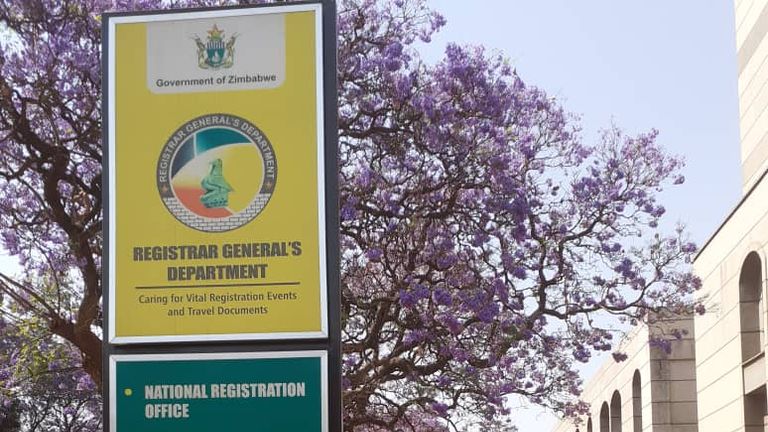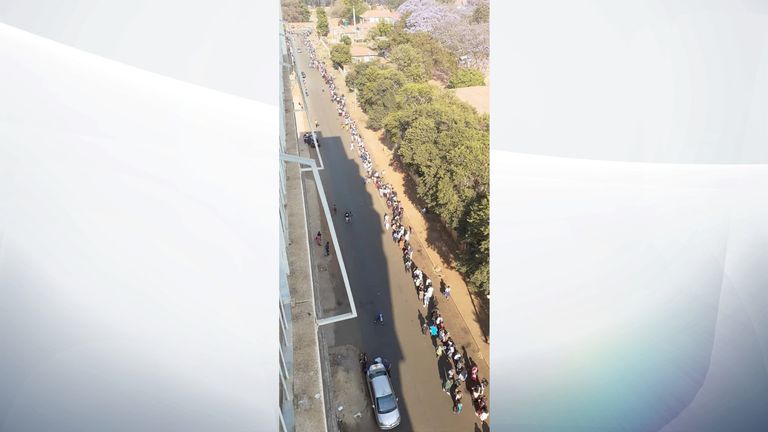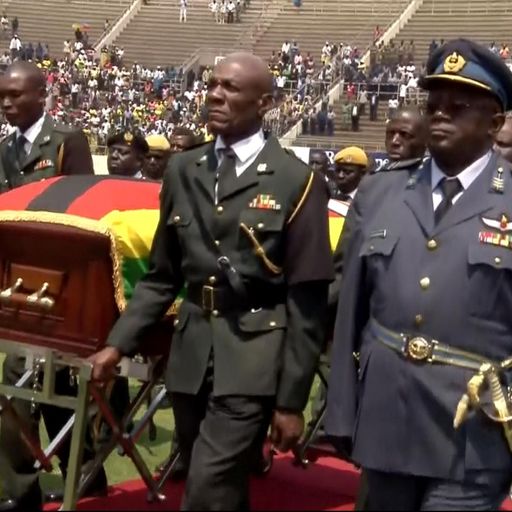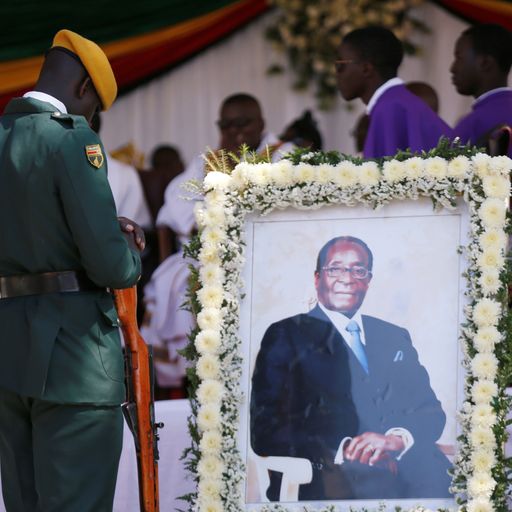There was one particular rumour that rocketed around the city of Harare this week.
It was a scrap of information, shared on the streets and on social media, which speaks volumes about the desperate state Zimbabweans now find themselves in.
The word was, staff at a government office had started printing Zimbabwean passports.
A massive queue, thousands of people long, formed in the early morning light as residents of the capital grasped the opportunity to get their travel papers. If there is a communal dream in this beleaguered nation, it generally involves leaving it – to find food, work and a little stability abroad.
Unsurprisingly, their hopes were dashed. Members of the queue were told to come back later in the month “for an assessment of the reasons why you need to travel”.
The fact is, civil servants cannot produce passports because the government cannot afford to pay for the paper and ink. The country’s registrar general, Clemence Masango, recently admitted to a whopping backlog of 370,000 passports.
Nor is Mr Masango likely to get the supplies he needs because this crisis-ridden government is not governing and the economy has virtually collapsed.
Inflation is running at more than 300% and the Zimbabwean dollar, introduced last year to restore “normality”, has lost more than half its value. The country suffers from rolling electricity blackouts and water and food shortages. Government hospitals barely function and doctors have been on strike for nearly a month.
“The country is basically falling apart,” said one man, called Norman, outside the passport office. “You want fuel? Well you won’t get it. Want to buy a chicken? That will cost you half a civil servant’s monthly salary. It can’t go on like this.”
It is a sentiment that just about every Zimbabwean agrees with – including the country’s president, Emmerson Mnangagwa, who described the economy as “dead” in a speech last week. But activists and international aid officials fear the economic meltdown could lead to something even worse – mass starvation.
“Look around you,” said one NGO official. “We are dying a slow death here. People can’t buy anything. People are getting slimmer.”
According to documents prepared by international aid agencies and seen by Sky News, Zimbabwe now faces its “worst ever hunger crisis” – an emergency caused by severe drought and compounded by government mismanagement.
More than two thirds of the rural population (5.6 million people) will experience “crisis” levels of food insecurity by January according to experts, as the country heads into the six-month “lean” period before the next harvest.
Aid agencies are also worried about people starving in the cities. Officials are conducting nutritional surveys in places like Harare for the first time in history, as residents complain of 400% increases for basic staples like maize.
“We really don’t know what is going to happen,” said one senior aid official speaking to Sky News. “By the end of November, the government will run out of grain and they (do not have the funds to) buy anymore.”
The World Food Programme is trying to secure £153m from donors to feed two million people into the next year.
But this crisis will ask more of the people who run this country – like Mr Mnangagwa.
Many Zimbabweans doubt his ability to provide even the most basic assistance.
Provided with a passport, the majority would surely leave.






